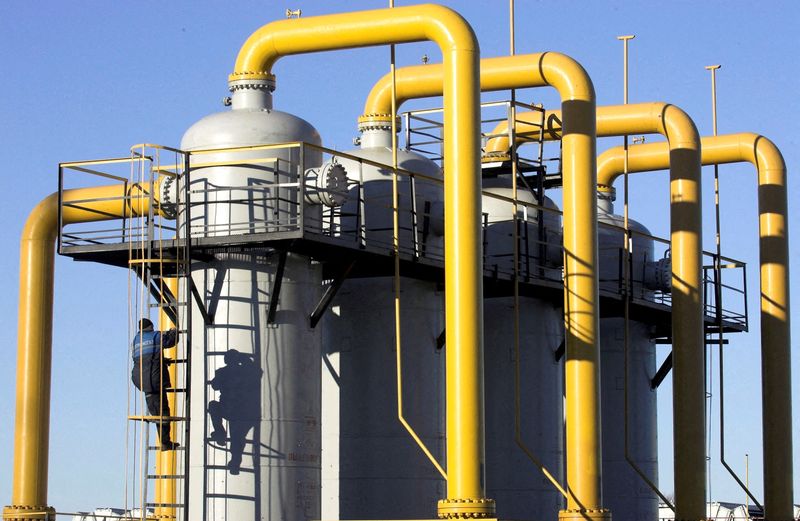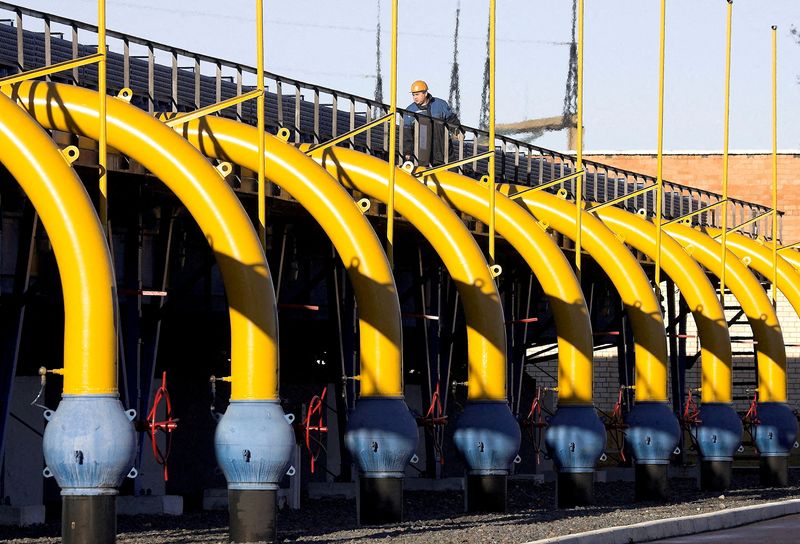By Susanna Twidale and Kate Abnett
LONDON/BRUSSELS (Reuters) - Europe could cut Russian gas imports by more than a third within a year, the International Energy Agency (IEA) said on Thursday in its 10-point plan on reducing reliance on Russia.
The European Union depends on Russia for about 40% of its gas needs, making it the bloc's biggest supplier, but the Russian invasion of Ukraine has sharpened concerns about this reliance and the possibility for supply disruptions.
"Russia's use of its natural gas resources as an economic and political weapon show Europe needs to act quickly to be ready to face considerable uncertainty over Russian gas supplies next winter," said Fatih Birol, executive director of the Paris-based agency, which represents 31 mostly industrialised nations but not Russia.
Moscow denies using gas as a weapon. Gazprom (MCX:GAZP), the state-run firm with a monopoly on Russian gas exports by pipeline, says it has met all its long-term contracts - which clients confirm - even though flows dipped in 2021.
Russian gas deliveries have held steady since Russia launched its invasion last week - action Moscow calls a "special operation" - but prices have still shot up in a gas market that was already tight even before the conflict raised new concerns.
The benchmark Dutch front-month gas price hit a record high of 199 euros ($220) per megawatt hour on Thursday morning. The price was below 16 euros at this time a year ago.
The IEA said Europe could secure about 30 billion cubic metres (bcm) of gas a year - about 20% of the amount Russia usually supplies - from Qatar, the United States and others.
Qatar has said no single country has the capacity to replace Russian supplies to Europe.
The IEA said European nations should not sign new gas contracts with Russia, introduce minimum gas storage obligations and accelerate new wind and solar power projects.
TIGHT GLOBAL MARKET
It also called for more energy efficiency measures and said consumers should turn down thermostats by 1 degree Celsius, a move it said could save about 10 bcm of gas a year.
"Taken together, these steps could reduce the European Union's imports of Russian gas by more than 50 billion cubic metres, or over one third, within a year," the IEA said.
Analysts say that, in theory, Europe's unused pipeline and liquefied natural gas (LNG) infrastructure could handle enough gas from other suppliers to almost replace Russia, but in practice this would be limited by global liquefaction capacity.
The European Commission will next week propose new steps to cut reliance on Russia and help deal with any supply shocks, including ensuring countries fill gas storage to a minimum level before winter and accelerating the rollout of renewables, according to a draft seen by Reuters.
The EU is also negotiating new measures to tackle climate change, such as boosting renewables usage, steps it sees as a lasting solution to ending dependence on fossil fuels and that could cut EU reliance on gas by 23% by 2030.
But these would not address a short-term supply crunch.
The IEA outlined short-term measures such as redirecting windfall profits made by energy firms, secured from high gas prices, to support customers facing higher bills.

The European Commission is expected to propose that member states tax windfall profits of energy companies to support investment in renewables and compensate consumers.
($1 = 0.9038 euros)
